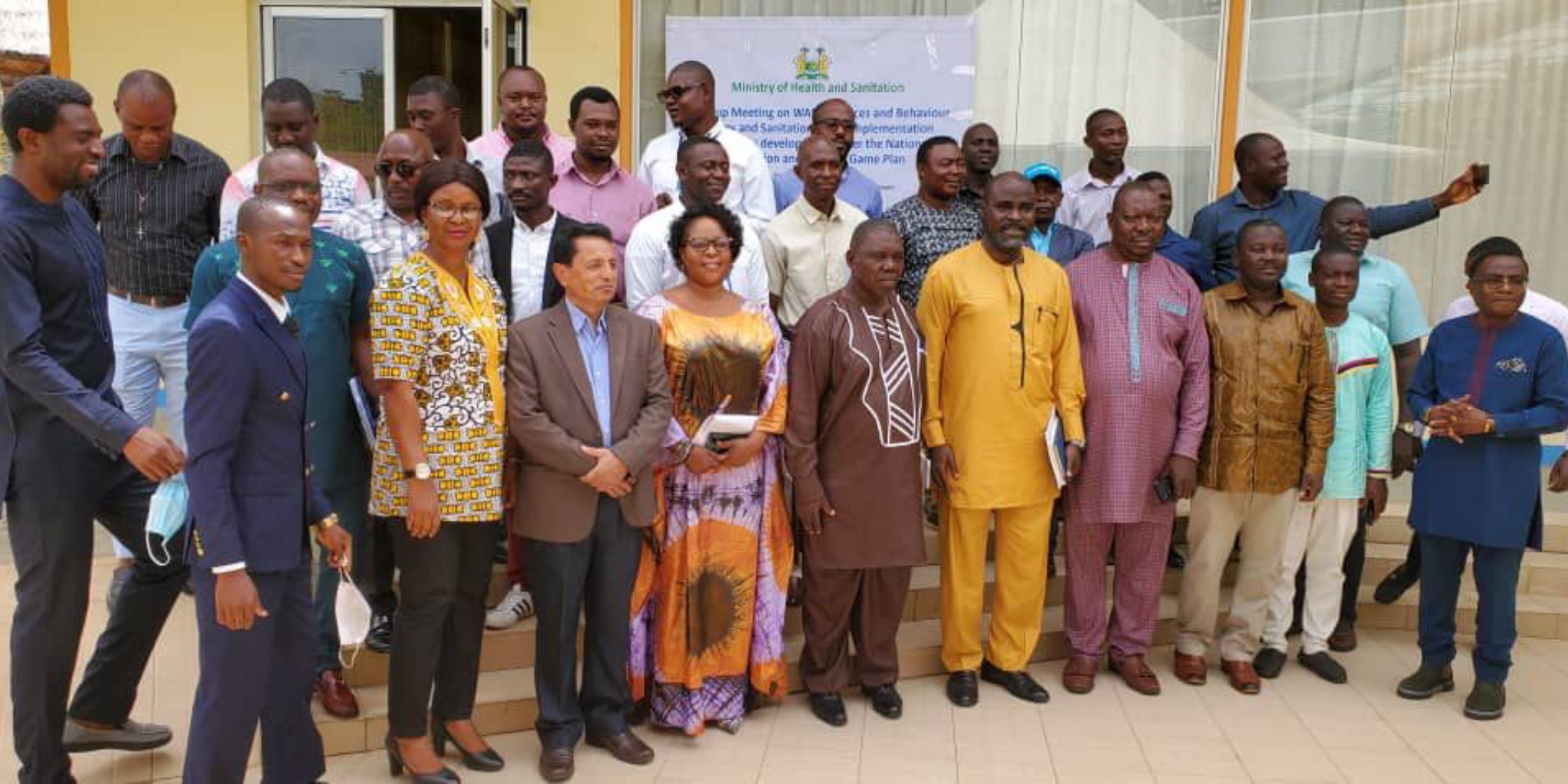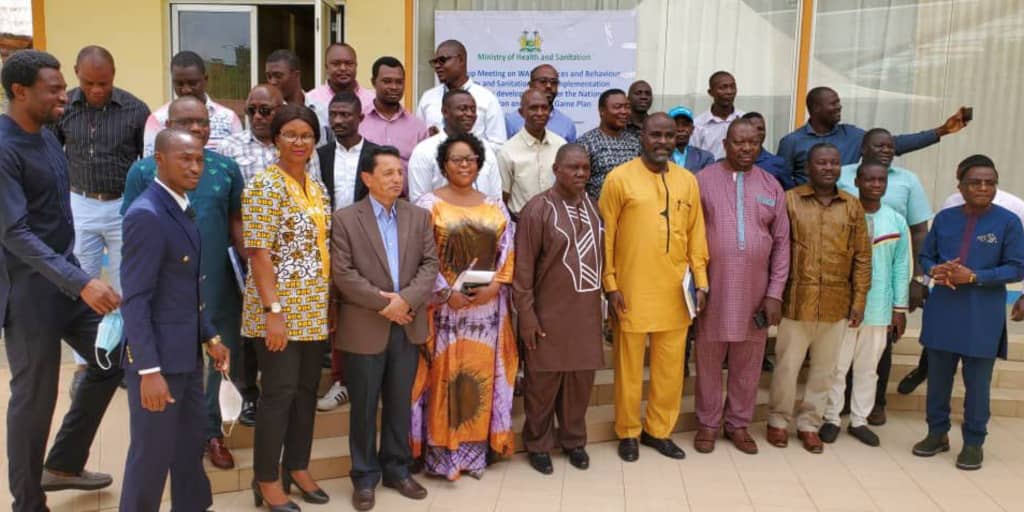The Ministry of Health and Sanitation in collaboration with Partners like the United Nation for Children Fund (UNICEF), the Ministry of Water Resources, the Ministry of Planning and Economic Development, Statistics Sierra Leone among other partners, have held a start-up stakeholders meeting on Water Sanitation and Hygiene (WASH) Behavior Survey and Sanitation Policy Implementation Guidelines Development under the National Sanitation and Hygiene Game Plan.
Delivering his keynote address, the Deputy Chief Medical Officer Dr. Mustapha Kabba, disclosed that Sierra Leone has been faced with major challenges of water, Sanitation and Hygiene (WASH) due to the lack of safe and clean drinking water resources, inadequate use of handwashing facilities and the accessibility of basic sanitation services especially during time of the COVID-19 pandemic.
He added that access to basic water supply services stand at 56% and access to basic sanitation services is at 18.5% adding that, Sierra Leone is alarmingly off track to achieve the Sustainable Development Goal 6.
He however acknowledged that some progress has been made in improving access to basic water supply services, access to basic hygiene and sanitation services with a percentage of (7%) increase recorded in the past two decades. Dr. Kabba further intimated that the situation is even direr considering the progress against the SDG indicators of safely managed water supply and sanitation services at the percentage of 11% and 14% respectively.
The Deputy Chief Medical Officer also acknowledged that the information management remains a critical need in the WASH sector in Sierra Leone. He intimated that there have been efforts to develop and harmonize indicators and tools for tracking results under the WASH sector. Despite the aforementioned said efforts, Dr. Kabba also maintained that the uptake and implementation of the M&E framework and use of the existing tools, remain a perennial challenge.

“Tracking of WASH behaviors (sanitation and hygiene) has been worse hit by this paucity of data sand systems for collecting and updating them. Routine data collection and updates are currently not place at any level, while the existing Wash infrastructure data has become stale and obsolete”, he said.
Dr. Kabba furthered that if Sierra Leone must make progress towards achieving the WASH SDGs, then there is a critical need for accelerated investment in the sanitation sector with robust system to routinely track the improvement in WASH requirement. He also justified the need for a conscious effort to streamline, systematize and scale-up evidence generation and data management in the sector.
He disclosed that the availability of reliable and up-to-date data for the sector would make room for sector wide planning, priority settling, effective resource mobilization and application which will promote governance accountability, value for money, and overall programme sustainability.
In his statement, the UNICEF representative Bishnu Timilsina-Chiefi, expressed that water Sanitation and Hygiene are basic Human Rights which everyone is entitled to. He added that Universal Access to water, sanitation and hygiene services is also key to the attainment of other SDGs, particularly Goals 3 and 4 which are related to quality of healthcare and education and gender equality.
He furthered that sanitation and hygiene services are well articulated in the Sustainable Development Goal 6.2.
Bishnu Timilsina-Chief also continued that more than 6.8 million people representing 80% in Sierra Leone, do not access safely managed sanitation services which causes open defecation and use of unimproved or unsafe sanitation facilities. He went further than 79% of the Sierra Leone population lack access to basic hygiene services. He referenced the 2019 WHO and UNICEF joint Monitoring Programme (JMP) report alluding that, only one in five schools in Sierra Leone do children have access to basic sanitation and services and 11% of healthcare facilities do not have toilet facilities.
The UNICEF representative also acknowledged that poor sanitation leads to contamination of drinking water resources, rivers, pollution, beaches, and food crops, spreading deadly diseases among the wider population. In Sierra Leone, he said 9 in 10 persons use a drinking water resource contaminated with feces adding that 1 out of every 14 children under five years in Sierra Leone suffers from Diarrhoea linked to unsafe water, sanitation, and poor hygiene.
“I appreciate the Government of Sierra Leone for the good progress so far made in the WASH sector. But huge disparity exists between the rural and urban, richer and poorer households. Still, for many people in Sierra Leone, access to toilets and hand hygiene facilities in their homes, workplaces, schools, and hospitals is far out of reach”, he said.
He, therefore, concluded by reaffirming that the availability of reliable and up-to-date data for the sector will make room for sector-wide planning priority setting, effective resource mobilization, and application. Overall, he reiterated that such policy formulation would promote sector governance, accountability, value for money, and overall program sustainability. He also called on the line Ministries to use the routine survey to appraise the status of the WASH services and behaviors from the users’ perspective, while focusing on users’ perception of service levels, access participation, satisfaction, and sustainability.











